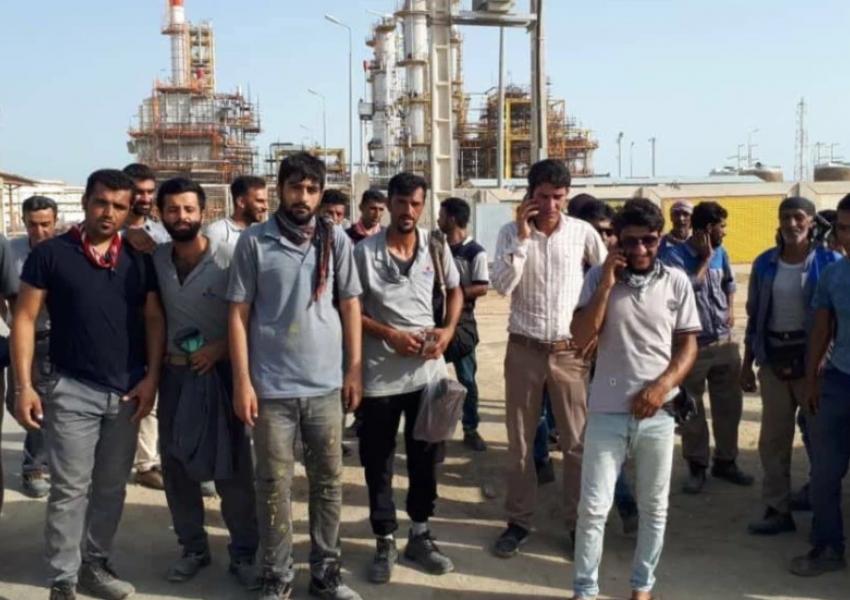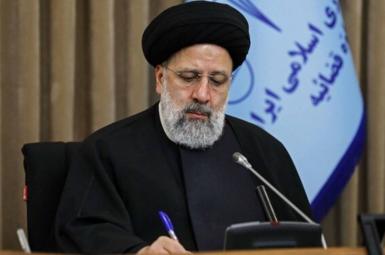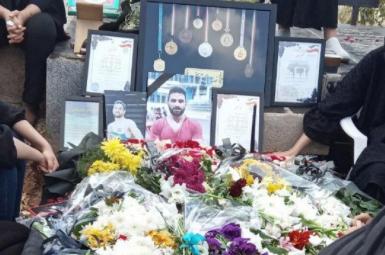
Boosting Workers' Wages Biggest Challenge For Iran's Raisi
Paying Iranian workers minimally acceptable wages amid high inflation and social unrest is one the first challenges confronting Islamic Republic’s newly elected president Ebrahim Raisi (Raeesi).
Most workers barely make $150 a month in Iran, which should be more than doubled, according to a member of the Supreme Labor Council (SLC), a government body tasked to adjust wages with inflation. If earnings reach 100 million rials ($400) a month, that will just mean paying people enough for an extremely modest living, especially if the wage-earner must support a family of four.
Ali Khodaee, who is a member of the SLC, told the Islamic Labour News agency (ILNA) Friday that workers cannot afford their most basic needs amid “runaway inflation”, even with some incremental pay increase the government approved earlier this year. The extra money they got has already evaporated, he explained.
Food prices have risen at least by 60 percent compared with last year while rents have increased close to 40 percent. Inflation is everywhere and there is no sign it can be controlled anytime soon. Ordinary wage earners must decide to buy basic food or pay for their rent or other expenses.
The Supreme Labor Council is a nine-member government board composed of three labor and three business representatives selected under government’s direction, two experts appointed by the government and the minister of labor. They meet quarterly during the year to discuss the labor market and wages. Any increase they agree on is applicable to all government entities and businesses connected with state institutions in the country’s largely state-controlled economy.
The official inflation was relatively under control around ten percent in 2016, when international sanctions had been lifted in the aftermath of the 2015 nuclear agreement between Iran and world powers. But with the election of Donald Trump and his opposition to the nuclear deal, uncertainty began to creep in and economic indicators worsened.
When Trump pulled out of the JCPOA, or the 2015 agreement, and imposed sanctions on Iran’s oil exports, a huge amount of capital estimated to have totaled $30-60 billion started to leave the country and the government began having hard currency shortages. The oil income covered at least 50 percent of the government budget and without it, the Islamic Republic began printing money. The national currency fell eightfold, making wages meaningless for workers. Incremental adjustments were made every year by inflation reaching hard-to-control levels of 30 and then 50 percent rose much faster than wage increases.
Raisi’s government can increase wages, but it must print money, which would boost inflation further and defeat the purpose of a wage increase. The result is that the majority of working Iranians must live on less income and some 60 percent have fallen into what government officials describe as poverty. Consumption of red meet has fallen by 50 percent, and many cannot even afford fruits and some vegetables.
Labor strikes and anti-government protests break out without warning and are controlled only by the sheer weight of anti-riot forces, often with shooting protesters and arresting hundreds. The latest wave came suddenly in July, in the oil-rich Khuzestan province, that suffers from poor infrastructure, lack of water and unemployment, while it is the biggest single contributor to Iran’s GDP.
Economists and even some loyal Islamic Republic politicians in Iran have ventured to call for an agreement with the United States and lifting of sanctions as the only way to contain the economic crisis.








